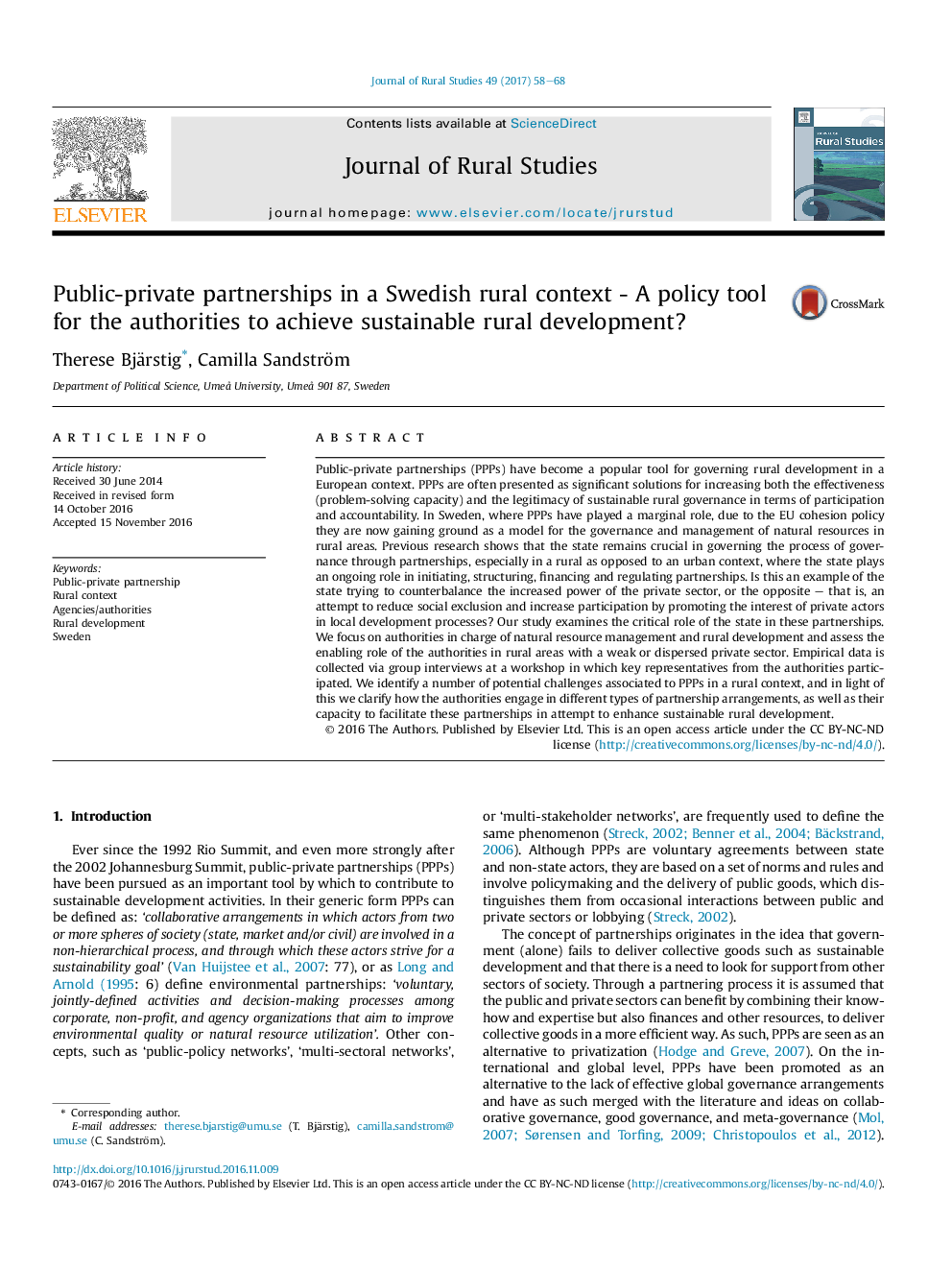ترجمه فارسی عنوان مقاله
مشارکت دولتی و خصوصی در زمینه روستایی سوئد - یک ابزار سیاست برای مقامات برای دستیابی به توسعه پایدار روستایی؟
عنوان انگلیسی
Public-private partnerships in a Swedish rural context - A policy tool for the authorities to achieve sustainable rural development?
| کد مقاله | سال انتشار | تعداد صفحات مقاله انگلیسی |
|---|---|---|
| 94820 | 2017 | 11 صفحه PDF |
منبع

Publisher : Elsevier - Science Direct (الزویر - ساینس دایرکت)
Journal : Journal of Rural Studies, Volume 49, January 2017, Pages 58-68
ترجمه کلمات کلیدی
مشارکت دولتی و خصوصی، زمینه روستایی، آژانس ها / مقامات، توسعه روستایی، سوئد،
کلمات کلیدی انگلیسی
Public-private partnership; Rural context; Agencies/authorities; Rural development; Sweden;

